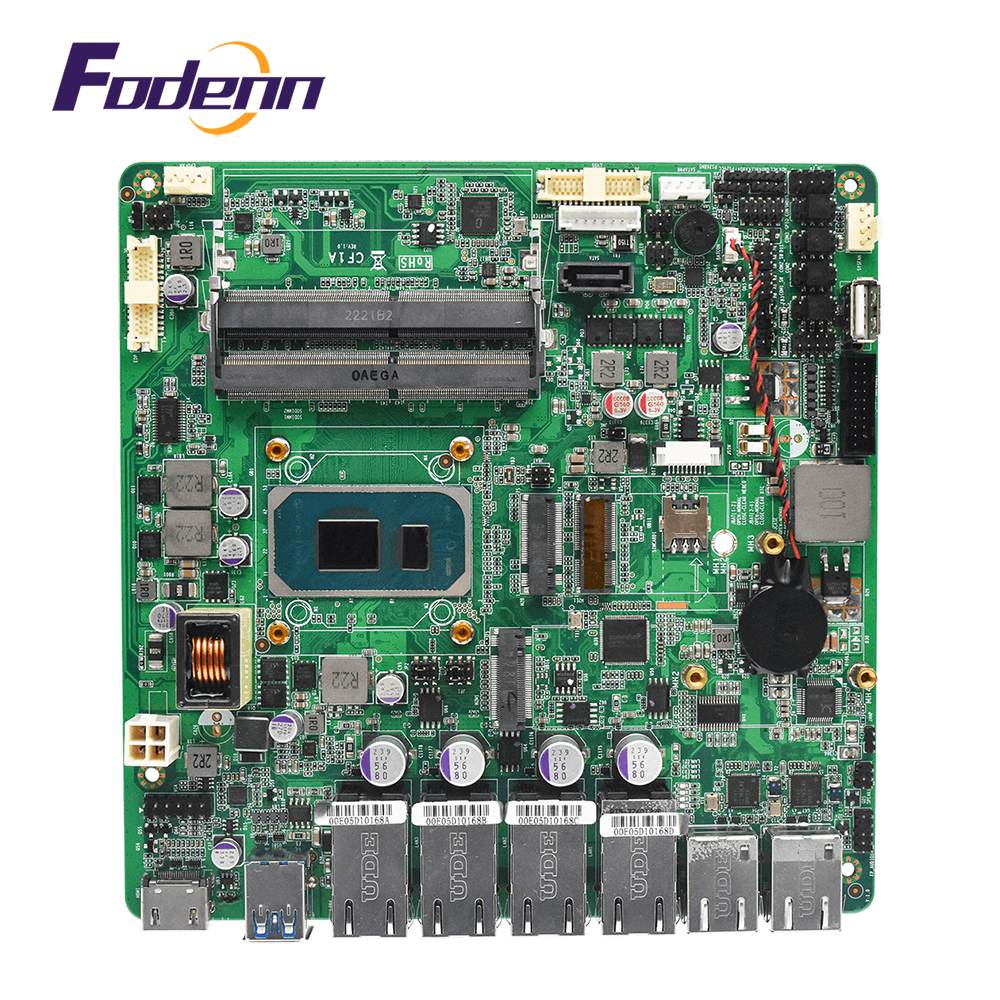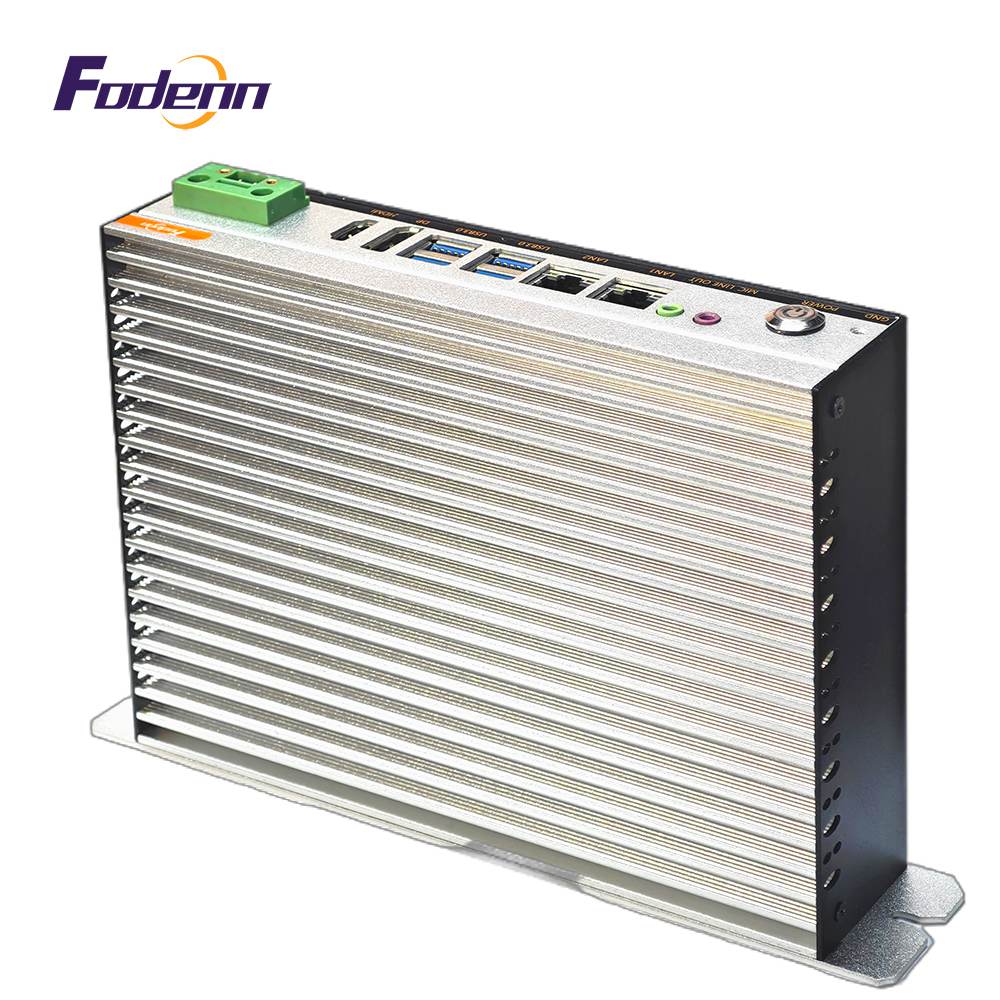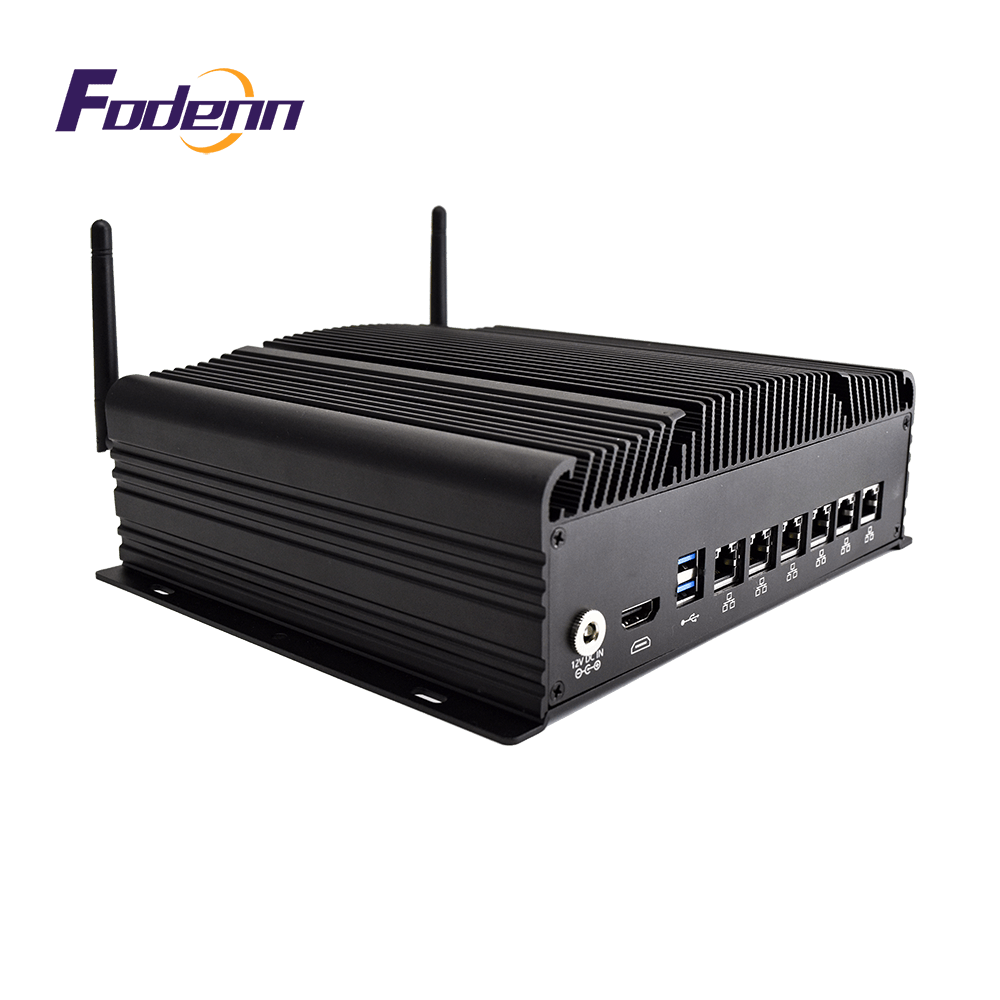In the previous article, we explored the common I/O interfaces found in industrial PCs, such as serial port and USB ports. In this article, we will delve into more advanced I/O interfaces and their specific applications in industrial settings. These interfaces are essential for high-speed data transfer, real-time control, and integration with specialized devices and systems.
Ethernet Ports
10/100/1000 Mbps Ethernet ports support high-speed network communication, enabling IPCs to connect to local area networks (LANs) and the internet. They are essential for remote monitoring, control, and data logging in industrial environments.
- High-Speed Data Transfer: Supports data transfer rates of 10 Mbps, 100 Mbps, and 1000 Mbps.
- Reliable Communication: Provides stable and reliable network connectivity, essential for critical industrial applications.
- Wide Adoption: Supported by a vast array of network devices and systems, ensuring easy integration.
Digital I/O Ports
General Purpose Input/Output (GPIO) ports are used for connecting to digital signal devices such as switches, sensors, and actuators. They are essential for applications that require real-time control and monitoring, such as automation and process control computer systems.
- Flexibility: Can be configured as either input or output, allowing for versatile control and feedback mechanisms.
- Real-Time Control: Supports high-speed, real-time data exchange, ensuring precise control and monitoring.
- Wide Application: Used in a variety of industrial applications, from simple on/off control to complex automation systems.
Analog I/O Ports
Analog-to-Digital Converter (ADC) ports are used for converting analog signals from sensors such as temperature sensors, pressure sensors, and potentiometers into digital signals that can be processed by the IPC.
- High Precision: Provides high-resolution conversion, ensuring accurate measurement of analog signals.
- Wide Range: Supports a wide range of input voltages, making it suitable for various sensor types.
- Real-Time Monitoring: Enables real-time monitoring and control of industrial processes.
Digital-to-Analog Converter (DAC) ports are used for converting digital signals from the IPC into analog signals that can control devices such as motors, valves, and other actuators.
- High Precision: Provides high-resolution conversion, ensuring precise control of analog devices.
- Wide Range: Supports a wide range of output voltages, making it suitable for various actuator types.
- Real-Time Control: Enables real-time control of industrial processes, ensuring smooth and precise operation.
CAN Bus Interface
Controller Area Network (CAN) bus is a high-speed, serial bus interface designed for real-time, distributed control systems. It is widely used in TGL6L automotive single board computer and AC700 industrial control computer applications where multiple devices need to communicate over a single bus.
- High-Speed Communication: Supports data transfer rates up to 1 Mbps.
- Real-Time Control: Ensures low-latency communication, making it ideal for real-time control applications.
- Fault Tolerance: Provides robust fault-tolerance mechanisms, ensuring reliable communication even in harsh environments.



Specialized Interfaces
Machine Vision Interfaces computers are used for connecting high-resolution cameras and vision systems, essential for quality inspection and automated visual tasks in industrial settings.
- High Data Transfer Rates: Supports high-resolution video streaming, ensuring detailed and accurate image capture.
- Synchronization: Provides synchronization mechanisms for precise timing and control.
- Wide Application: Used in a variety of industrial applications, from quality control to robotics.
Motion Control Interfaces computers are used for connecting to motor controllers and other motion control devices, crucial for precise mechanical movements in manufacturing and robotics.
- High Precision: Provides high-resolution control, ensuring precise movement and positioning.
- Real-Time Control: Supports real-time feedback and control, ensuring smooth and accurate operation.
- Wide Application: Used in a variety of industrial applications, from CNC machines to robotic arms.
Expansion Slots
PCI and PCIe expansion slots are used for adding additional functionality to IPCs. AC400 PCIe expansion industrial computers allow the installation of various expansion cards, such as data acquisition cards, graphics cards, and communication cards.
- High Data Transfer Rates: Supports high-speed data transfer, ensuring efficient communication between the IPC and expansion cards.
- Flexibility: Allows for a wide range of expansion cards, providing versatile customization options.
- Future-Proof: PCIe, in particular, offers high data transfer rates and is becoming increasingly popular in modern IPCs for its flexibility and performance.
In conclusion, the advanced I/O interfaces discussed are pivotal for enhancing the capabilities of industrial control PCs in various applications. From the high-speed data transfer capabilities of Ethernet ports to the precision control offered by Digital I/O and Analog I/O ports, these interfaces ensure that IPCs can meet the demands of modern industrial environments.
If you are looking to integrate these advanced features into your industrial computing solutions or need expert advice on selecting the right IPC for your specific needs, Fodenn IPC Manufacturer is here to help. Our team of professionals can provide you with tailored computing solutions that leverage the latest technologies to enhance your operational efficiency and reliability.